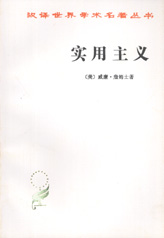牛津实用英语语法-第50章
按键盘上方向键 ← 或 → 可快速上下翻页,按键盘上的 Enter 键可回到本书目录页,按键盘上方向键 ↑ 可回到本页顶部!
————未阅读完?加入书签已便下次继续阅读!
你不需要/将不需要说什么。
I dared not wake him.
我不敢叫醒他。
但是说:
I didn’ t/wouldn’ t dare(to) wake him.
我没敢/不敢叫醒他。
理论上,在最后一个例句中要求用to,但实际上常被省略。按语法规则来说,如果dare和used用为助动词,它们就像大多数助动词一样后面接不带to的不定式;如果它们用为普通动词并与do/ did等连用,就像普通动词一样后面接带to的不定式。
C feel, hear, see和 watch:
I heard him lock the door.
我听见他锁了门。
I saw/watched him drive off.
我看见他开车走了。
但see和hear在被动语态的句子中要与带to的不定式连用:
He was seen to enter the office.
有人看见他进了办公室。
He was heard to say that…
有人听见他说过……
但feel,hear,see和watch经常是与现在分词连用:
I heard them shouting.
我听到他们在大声喊叫。(参见第273节。)
D let在主动语态和被动语态的句子中都与不带to的不定式连用。但let在被动语态的句子中常常被另一个词所代替: Theylet me know… 在被动词态的句子中被 I was told… 所代替,而 They let him see the documents则被 He was allowed to see them所代替。
let之后的不定式/不定式短语有时为了避免重复而被省略:
She wants to go out to work but he won’t let her(go out to work).
她想要出去工作,可他不让她去。
在下面的习语中,let没有宾语:
Live and let live.
宽己容人。
(关于 let us/let’s 用于表示命令和建议,参见第281节与第289节。)
E make
make 在主动语态的句子中与不带to的不定式连用:
He made me move my car.
他迫使我挪动我的汽车。
但在被动语态的句子中make与带to的不定式连用:
I was made to move my car.
我被迫挪动了我的汽车。
为了避免重复,有时make(主动语态)之后的不定式可省去:
—Why did you tell him?
—He made me(tell him)!
—你为什么要告诉他?
—是他迫使我(告诉他)的!
make(被动语态)之后的不定式可由to来代表:
I was made to(tell him).
我是被迫(告诉他)的。
F would rather/sooner, rather/sooner than(参见第297与第298书):
—Shall we go today?
—I’d rather wait till tomorrow.
—我们今天去好吗?
—我宁可等到明天再去。
Rather/Sooner than risk a bad crossing, he postponed his journey.
他不愿冒大风险,推迟了横渡海峡的旅行。
G had better(参见第120节):
‘You had better start at once,’he said.
他说:“你最好马上就动身。”
H help后面接带to或不带to的不定式都可以:
He helped us(to) push it.
他帮我们推它。
I 如果两个不定式由and连接在一起,通常可将第二个不定式的to省略:
I intend to sit in the garden and write letters.
我打算坐在花园里并写些信。
I want you to stand beside me and hold the torch.
我要你站在我身边拿着手电筒。
J but 和 except跟在 do+ anything/nothing/everything后面时,可以与不带to的不定式连用:
He does nothing but plain.
他只是一个劲地抱怨。
My dog does everything but speak.
我的狗除了不会说话以外什么都会。
Can’t you do anything but ask silly questions?
你别一个劲地提愚蠢的问题好吗?(你除了提愚蠢的问题,难道不会干点别的?)
There’s nothing to do but wait.
除了等候没有别的办法。
K 在下列句子中to可有可无:
The only thing to do/we can do is(to) write to him.
唯一可做的事/我们唯一能做的事是给他写信。
All we can do is(to) write to him.
(译文同上。)
?
'Amber demo'
247 用to代表的不定式
?
为了避免重复,不定式可只用一个to来代表。这种用法主要用于下列动词之后: hate, hope, intend, would like/love,make(被动语态),mean, plan, try, want;也用于助动词如have, need, ought之后时以及与 used to, be able to和 be go-ing to结构连用时:
—Would you like to e with me?
—Yes, I’d love to.
—你愿意和我一起走吗?
—是的,我愿意。
—Did you get a ticket?
—No, I tried to, but there weren’t any left.—你有票了吗?
—没有,我尽力找了,可一张也没有了。
—Why did you take a taxi?
—I had to(take one).I was late.
—你为什么坐出租汽车?
—我不得不坐。(因为)我晚了。
—Do you ride?
—Not now but I used to.
—你骑马吗?
—我现在不骑了,但以前骑。
He wanted to go but he wasn’t able to.
他想去,但去不了。
—Have you fed the dog?
—No, but I’m just going to.
—你喂过狗了吗?
—没有,我这就要去呢。
?
'Amber demo'
248 分裂不定式
?
在to和动词原形之间插入另一个词,称为分裂不定式。这种用法过去常被认为是文字不通顺,但现在人们对它的看法比较宽容了。
在日常口语中really常常接在to之后而位于动词原形之前。
It would take ages to really master this subject.
这门学科需要许多年才能真正掌握。
这个地方如用 really to master,反而显得过分正式。
其他一些程度副词如pletely,entirely,(un)duly也可同样使用。可以说:
(a) to pletely cover the floor完全铺满地板
而不说:
(b) to cover the floor pletely
(a) to unduly alarm people过分使人们惊惶
而不说:
(b) to alarm people unduly
但按照惯例,如上面(b)所示则较为安全。
?
'Amber demo'
249 可起连词作用的不定式
?
A 不定式用在only后面时,常表示一种令人失望的后果:
He hurried to the house only to find that it was empty.
他急忙赶到那所房子,却发现空无一人。相当于:
He hurried to the house and was disappointed when he found that it was empty.
他急忙赶到那所房子,但发现房子空无一人时感到大为失望。
he survived the crash only to die in the desert.相当于:
He survived the crash but died in the desert.
飞机坠毁时他幸免于难,后来却死在沙漠里。
B 不定式前不加 only也可以起连接作用,并且不带有不幸的含义:
He returned home to learn that his daughter had just bee engaged.
他回到家里,得知女儿才订了婚。
但这类用法主要限于如 find, hear, learn,see, be told这类动词,否则用于起连接作用的不定式就可能被错认为是表示目的的不定式。
?
'Amber demo'
250 可替代关系从句的不定式
?
A 不定式可用于 the first, the second等如此类推及 the last, theonly之后,有时也可用于最高级之后(参见第77节):
He loves parties; he is always the first to e and the last to leave.
他喜欢参加社交聚会,总是头一个来,最后一个走。
She was the only one to survive the crash.
她是这次事故中唯一的幸存者。
这样使用的不定式代替了主格代词+动词结构。下面B中将它与不定式代替宾格代词+动词结构进行了比较。
注意这里不定式的含义是主动的。如果需要被动的含义则用不定式的被动式:
He is the second man to be killed in this way.
他是第二个这样死于非命的人。
the best play to be performed that year那年演出的最精彩的戏
试与下面短语比较:
the best play to perform 一出最适合/最应当由你演出的戏
B1 不定式可以放在名词和代词后面以表示可以怎么使用或处置它们,有时也可表示主语的愿望(参见第77节):
I have letters to write.
我有信要写。
Does he get enough to eat?
他吃得饱吗?
Have you anything to say?
你有话要说吗?
At the customs: I have nothing to declare.
在海关检查站:我没有要报关的。
a house to let待出租的房子
不定式+介词结构也可以这样使用:
someone to talk to可与交谈的人
a case to keep my records in放我的磁带的盒子
cushions to sit on 坐垫
a glass to drink out of 喝水杯
a tool to open it with用来打开这东西的工具
a table to write on写字台
2 不定式被动式的类似用法
There is plenty to do.
(a)有不少事情可做。即可供自娱的事。
(b)有不少工作必须做。
there+ be+名词/代词+不定式结构如有“义务”的含义,如上面(b)所示,则可用不定式的被动形式:
There is a lot to be done.
有大量的事要做。
但不定式的主动形式用得更多。
?
'Amber demo'
251 某些特定的名词之后的不定式
?
常用的可以直接跟不定式的名词有:
ability牋牋牋牋牋 demand牋牋牋牋牋牋 failure牋牋牋牋牋牋 request
ambition牋牋牋 desire牋牋牋牋牋牋牋?offer牋牋牋牋牋牋牋 scheme
anxiety牋牋牋牋 determination牋牋 plan牋牋牋牋牋牋牋?willingness
attempt牋牋牋牋 eagerness牋牋牋牋?promise牋牋牋牋牋 wish
decision牋牋牋?effort牋牋牋牋牋牋牋?refusal
例句如:
His ability to get on with people is his chief asset.
他与人融洽相处的能力是他的主要资本。
He made an attempt/effort to stand up.
他努力要站起来。
Failure to obey the regulations may result in disqualification.
若不遵守规章,就会被取消资格。
Their offer/plan/promise to rebuild the town was not taken seriously.
他们重新修建城镇的提议/计划/保证没有得到重视。
She was annoyed by his unwillingness to do his share of the work.
他不愿干他那一份工作,这使她很不高兴。
?
'Amber demo'
252 too,enough以及so…as 之后的不定式
?
A too+形容词/副词+不定式
1 too+形容词+不定式
(a)不定式可以是指句子的主语而言,此时它具有主动含义:
You are too young to understand.
你太年轻了没法懂得(这件事)。
He was too drunk to drive home.
他醉得太厉害了,没法开车回家。
(b)不定式也可以指动词的宾语而言,此时它具有被动的含义:
The plate was so hot that we couldn’t touch it.
盘子太烫,碰不得。
可以表示为:
The plate was too hot to touch.
盘子烫得没法碰。
注意:第一句中touch的宾语it在第二句的不定式结构里消失了,因为不定式虽然形式上是主动的,在含义上却是被动的。
有时,不定式的主动式或被动式都可用:
This parcel is too heavy to send/to be sent by post.
这个包裹太重了,不能邮寄。
但并不是在任何情况下以上两种形式都可用,学生因此最好一律使用不定式的主动式。
该结构中不定式之前可以加上for+名词/代词:
The case was too heavy(for a child) to carry.相当于:
The case was too heavy to be carried by a child.
箱子太重了,孩子搬不动。
(c)与此类似的情况是,不定式可以指介词的宾语而言:
The grass was so wet that we couldn’t sit on it.
草地湿得没法坐。
The grass was too wet(for us) to sit on.
草地太湿了,(我们)不能坐。
The light is so weak that we can’t read by it.
光线太暗了,我们无法看书。
The light is too weak to read by.
光线太暗,不能看书。
2 too+形容词+a+名词+不定式
He was too shrewd a businessman to accept the first offer.相当于:
As a businessman he was too sh





